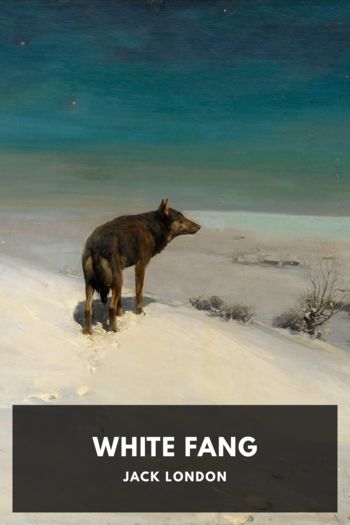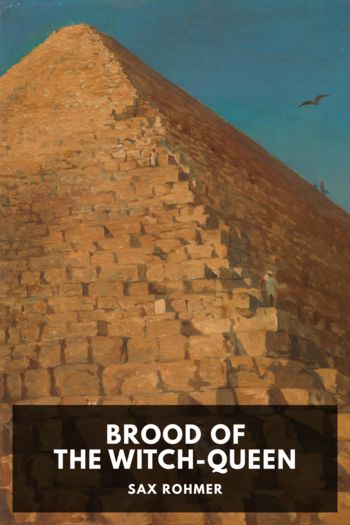Short Fiction - Robert E. Howard (the reading list TXT) 📗

- Author: Robert E. Howard
Book online «Short Fiction - Robert E. Howard (the reading list TXT) 📗». Author Robert E. Howard
“Who invited you aboard?”
“Get under way!” roared the intruder with a fierce gesture that spattered red drops from his broadsword.
“But we’re bound for the coasts of Kush!” expostulated the master.
“Then I’m for Kush! Push off, I tell you!” The other cast a quick glance up the street, along which a squad of horsemen were galloping; far behind them toiled a group of archers, crossbows on their shoulders.
“Can you pay for your passage?” demanded the master.
“I pay my way with steel!” roared the man in armor, brandishing the great sword that glittered bluely in the sun. “By Crom, man, if you don’t get under way, I’ll drench this galley in the blood of its crew!”
The shipmaster was a good judge of men. One glance at the dark scarred face of the swordsman, hardened with passion, and he shouted a quick order, thrusting strongly against the piles. The galley wallowed out into clear water, the oars began to clack rhythmically; then a puff of wind filled the shimmering sail, the light ship heeled to the gust, then took her course like a swan, gathering headway as she skimmed along.
On the wharfs the riders were shaking their swords and shouting threats and commands that the ship put about, and yelling for the bowmen to hasten before the craft was out of arbalest range.
“Let them rave,” grinned the swordsman hardily. “Do you keep her on her course, master steersman.”
The master descended from the small deck between the bows, made his way between the rows of oarsmen, and mounted the mid-deck. The stranger stood there with his back to the mast, eyes narrowed alertly, sword ready. The shipman eyed him steadily, careful not to make any move toward the long knife in his belt. He saw a tall powerfully built figure in a black scale-mail hauberk, burnished greaves and a blue-steel helmet from which jutted bull’s horns highly polished. From the mailed shoulders fell the scarlet cloak, blowing in the sea-wind. A broad shagreen belt with a golden buckle held the scabbard of the broadsword he bore. Under the horned helmet a square-cut black mane contrasted with smoldering blue eyes.
“If we must travel together,” said the master, “we may as well be at peace with each other. My name is Tito, licensed master-shipman of the ports of Argos. I am bound for Kush, to trade beads and silks and sugar and brass-hilted swords to the black kings for ivory, copra, copper ore, slaves and pearls.”
The swordsman glanced back at the rapidly receding docks, where the figures still gesticulated helplessly, evidently having trouble in finding a boat swift enough to overhaul the fast-sailing galley.
“I am Conan, a Cimmerian,” he answered. “I came into Argos seeking employment, but with no wars forward, there was nothing to which I might turn my hand.”
“Why do the guardsmen pursue you?” asked Tito. “Not that it’s any of my business, but I thought perhaps—”
“I’ve nothing to conceal,” replied the Cimmerian. “By Crom, though I’ve spent considerable time among you civilized peoples, your ways are still beyond my comprehension.
“Well, last night in a tavern, a captain in the king’s guard offered violence to the sweetheart of a young soldier, who naturally ran him through. But it seems there is some cursed law against killing guardsmen, and the boy and his girl fled away. It was bruited about that I was seen with them, and so today I was haled into court, and a judge asked me where the lad had gone. I replied that since he was a friend of mine, I could not betray him. Then the court waxed wrath, and the judge talked a great deal about my duty to the state, and society, and other things I did not understand, and bade me tell where my friend had flown. By this time I was becoming wrathful myself, for I had explained my position.
“But I choked my ire and held my peace, and the judge squalled that I had shown contempt for the court, and that I should be hurled into a dungeon to rot until I betrayed my friend. So then, seeing they were all mad, I drew my sword and cleft the judge’s skull; then I cut my way out of the court, and seeing the high constable’s stallion tied near by, I rode for the wharfs, where I thought to find a ship bound for foreign parts.”
“Well,” said Tito hardily, “the courts have fleeced me too often in suits with rich merchants for me to owe them any love. I’ll have questions to answer if I ever anchor in that port again, but I can prove I acted under compulsion. You may as well put up your sword. We’re peaceable sailors, and have nothing against you. Besides, it’s as well to have a fighting-man like yourself on board. Come up to the poop-deck and we’ll have a tankard of ale.”
“Good enough,” readily responded the Cimmerian, sheathing his sword.
The Argus was a small sturdy ship, typical of those trading-craft which ply between the ports of Zingara and Argos and the southern coasts, hugging the shoreline and seldom venturing far into the open ocean. It was high of stern, with a tall curving prow; broad in the waist, sloping beautifully to stem and stern. It was guided by the long sweep from the poop, and propulsion was furnished mainly by the broad striped silk sail, aided by a jibsail. The oars were for use in tacking out of creeks and bays, and during calms. There were ten to the side, five fore and five aft of the small mid-deck. The most precious part of the cargo was lashed under this deck, and under the foredeck. The men slept on deck or between the rowers’ benches, protected in bad weather by canopies. With twenty men at the oars, three at





Comments (0)